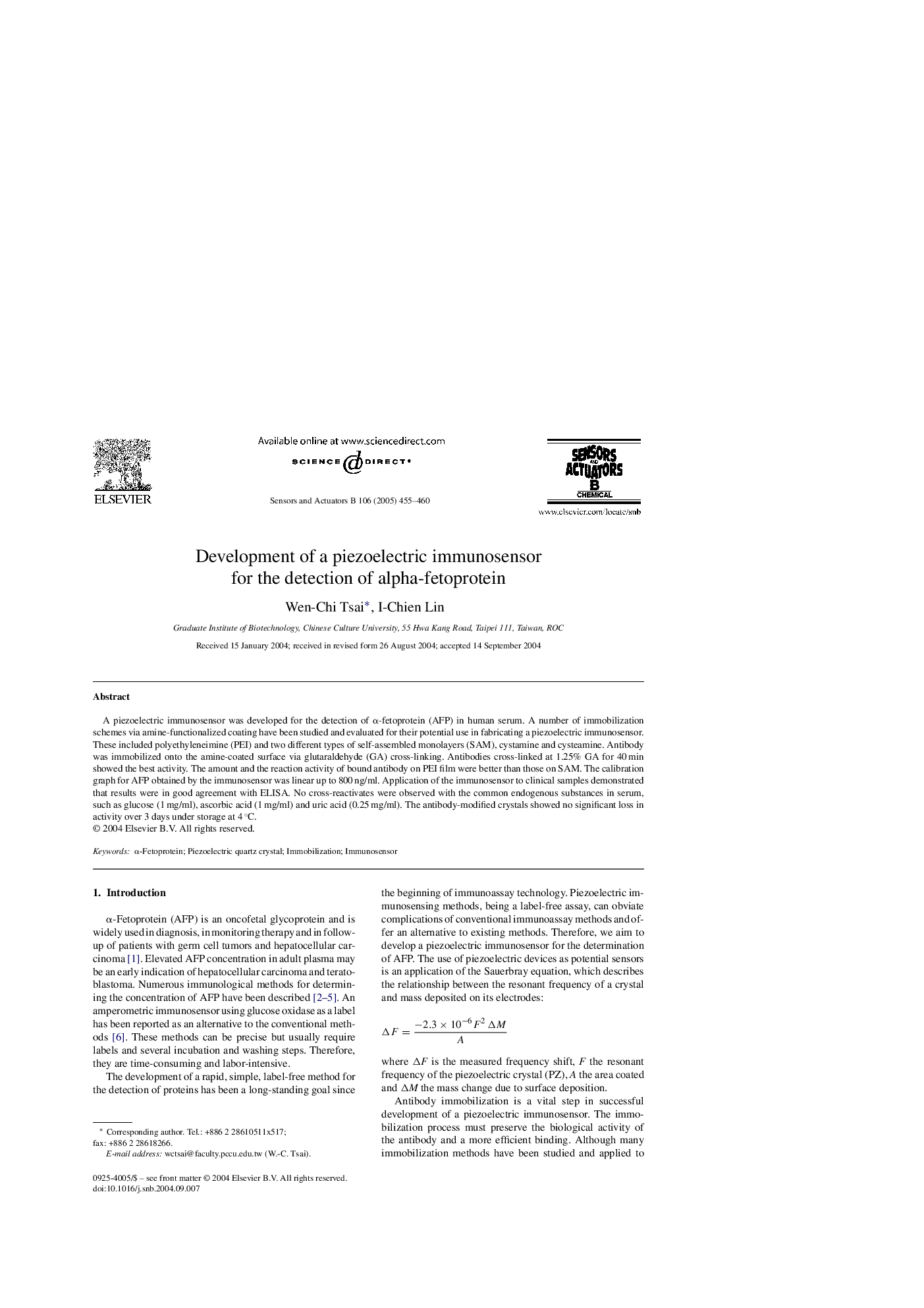| Article ID | Journal | Published Year | Pages | File Type |
|---|---|---|---|---|
| 10410456 | Sensors and Actuators B: Chemical | 2005 | 6 Pages |
Abstract
A piezoelectric immunosensor was developed for the detection of α-fetoprotein (AFP) in human serum. A number of immobilization schemes via amine-functionalized coating have been studied and evaluated for their potential use in fabricating a piezoelectric immunosensor. These included polyethyleneimine (PEI) and two different types of self-assembled monolayers (SAM), cystamine and cysteamine. Antibody was immobilized onto the amine-coated surface via glutaraldehyde (GA) cross-linking. Antibodies cross-linked at 1.25% GA for 40 min showed the best activity. The amount and the reaction activity of bound antibody on PEI film were better than those on SAM. The calibration graph for AFP obtained by the immunosensor was linear up to 800 ng/ml. Application of the immunosensor to clinical samples demonstrated that results were in good agreement with ELISA. No cross-reactivates were observed with the common endogenous substances in serum, such as glucose (1 mg/ml), ascorbic acid (1 mg/ml) and uric acid (0.25 mg/ml). The antibody-modified crystals showed no significant loss in activity over 3 days under storage at 4 °C.
Related Topics
Physical Sciences and Engineering
Chemistry
Analytical Chemistry
Authors
Wen-Chi Tsai, I-Chien Lin,
